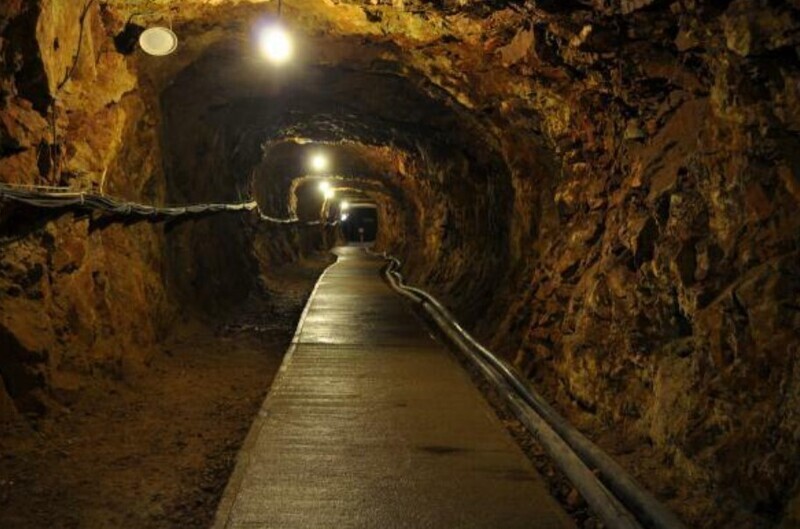hankyoreh
Links to other country sites 다른 나라 사이트 링크
Japan hoisted by own petard with UNESCO rule change

The Japanese government finds itself in a difficult position ahead of its application to have the Sado gold mine complex in Niigata Prefecture — where Japan used Korean forced labor — registered as a UNESCO World Heritage site.
That’s because of a new system introduced last year at Japan’s “strenuous request,” which allows for World Heritage registration reviews to be suspended when other member countries raise objections. If Japan does go ahead with the registration over South Korea’s objections, it ends up repudiating its own argument.
On Wednesday, the Asahi Shimbun newspaper remarked on the difficult situation Japan faces with the Sado mine complex registration.
“In 2021, the U.N. cultural and scientific body introduced a system for the International Memory of the World Register under which a candidate site will not gain recognition if another member nation objects,” the newspaper wrote. “The system was introduced in response to Japan’s fierce protest over the 2015 listing of China’s Documents of the Nanking Massacre, which Beijing contends is a record of atrocities committed by Japanese troops.”
Explaining the awkward situation faced by Tokyo, it quoted an official with the Japanese Ministry of Foreign Affairs saying, “If Japan presses ahead with the recommendation without agreement [from South Korea], it could deal a tremendous blow to the whole system.”
At the time of China’s registration of materials related to the Nanjing Massacre, Japan noted a difference in views between the two nations, adding that the registration was “deeply dismaying for an international organization that is obliged to observe neutrality and fairness.”
In 2016, 14 groups in eight countries — including South Korea and China — applied to register archival materials on the Japanese military’s wartime sexual slavery system.
Through an all-out pressure campaign in which it refused to pay dues to UNESCO, Japan succeeded in getting the system changed in April 2021 to one in which registrations would be halted in the event of objections from member countries, allowing dialogue to proceed indefinitely between the countries in question. This made it effectively impossible to register archival materials on the “comfort women” system on the Memory of the World list.
That system applies to the UNESCO Memory of the World Programme, but not to prospective World Heritage sites such as the Sado mine complex.
But in a telephone interview with the Hankyoreh, Jeon Jin-sung, head of the Culture Division of the Korean National Commission for UNESCO, said, “The type of heritage doesn’t change the argument behind it.”
“If [Japan] goes ahead with requesting registration of the Sado mines, it inevitably ends up contradicting the very argument it made during discussions on reforming the Memory of the World system,” he explained.
At the same time, a huge backlash is predicted internally if the registration is postponed out of concerns over how it looks to the outside world. At a meeting Tuesday, an association of conservative and right-wing Liberal Democratic Party lawmakers, adopted a resolution urging for the “recommendation of the Sado mine complex as a World Heritage site,” which it submitted to the Japanese Ministry of Foreign Affairs and Agency for Cultural Affairs.
Meeting with the press corps the same day, Prime Minister Fumio Kishida said, “Achieving the registration is of paramount importance.”
“We want to consider what would be the most effective way of doing that,” he added.
The Japanese government must conclude whether to push forward with its recommendation to UNESCO by Feb. 1. It is expected to reach its final conclusion after meetings of relevant government agencies and the Japanese Cabinet to be spearheaded by the Ministry of Foreign Affairs next week.
By Kim So-youn, Tokyo correspondent
Please direct questions or comments to [english@hani.co.kr]

Editorial・opinion
![[Column] Park Geun-hye déjà vu in Yoon Suk-yeol [Column] Park Geun-hye déjà vu in Yoon Suk-yeol](https://flexible.img.hani.co.kr/flexible/normal/500/300/imgdb/original/2024/0424/651713945113788.jpg) [Column] Park Geun-hye déjà vu in Yoon Suk-yeol
[Column] Park Geun-hye déjà vu in Yoon Suk-yeol![[Editorial] New weight of N. Korea’s nuclear threats makes dialogue all the more urgent [Editorial] New weight of N. Korea’s nuclear threats makes dialogue all the more urgent](https://flexible.img.hani.co.kr/flexible/normal/500/300/imgdb/original/2024/0424/7317139454662664.jpg) [Editorial] New weight of N. Korea’s nuclear threats makes dialogue all the more urgent
[Editorial] New weight of N. Korea’s nuclear threats makes dialogue all the more urgent- [Guest essay] The real reason Korea’s new right wants to dub Rhee a founding father
- [Column] ‘Choson’: Is it time we start referring to N. Korea in its own terms?
- [Editorial] Japan’s rewriting of history with Korea has gone too far
- [Column] The president’s questionable capacity for dialogue
- [Column] Are chaebol firms just pizza pies for families to divvy up as they please?
- [Column] Has Korea, too, crossed the Rubicon on China?
- [Correspondent’s column] In Japan’s alliance with US, echoes of its past alliances with UK
- [Editorial] Does Yoon think the Korean public is wrong?
Most viewed articles
- 1‘We must say no’: Seoul defense chief on Korean, USFK involvement in hypothetical Taiwan crisis
- 2Will NewJeans end up collateral damage in internal feud at K-pop juggernaut Hybe?
- 3[Column] Park Geun-hye déjà vu in Yoon Suk-yeol
- 4Why Korea shouldn’t welcome Japan’s newly beefed up defense cooperation with US
- 5Thursday to mark start of resignations by senior doctors amid standoff with government
- 6N. Korean hackers breached 10 defense contractors in South for months, police say
- 7[Guest essay] The real reason Korea’s new right wants to dub Rhee a founding father
- 8[Column] ‘Choson’: Is it time we start referring to N. Korea in its own terms?
- 9Kim Jong-un expressed ‘satisfaction’ with nuclear counterstrike drill directed at South
- 10[Editorial] New weight of N. Korea’s nuclear threats makes dialogue all the more urgent